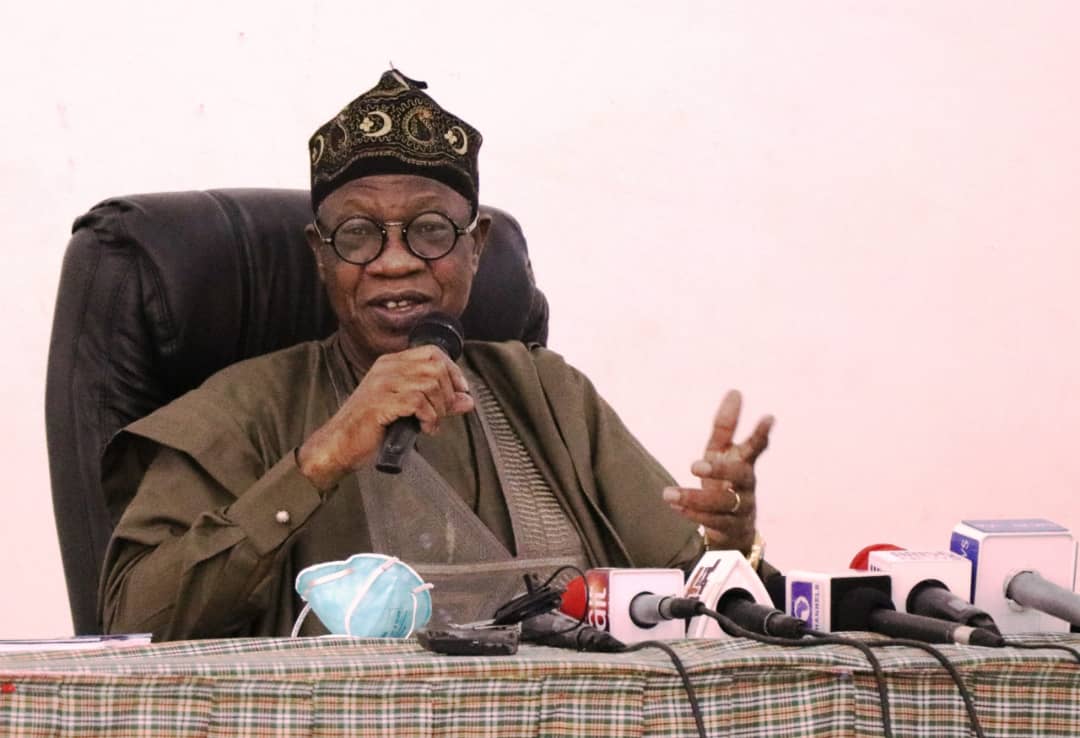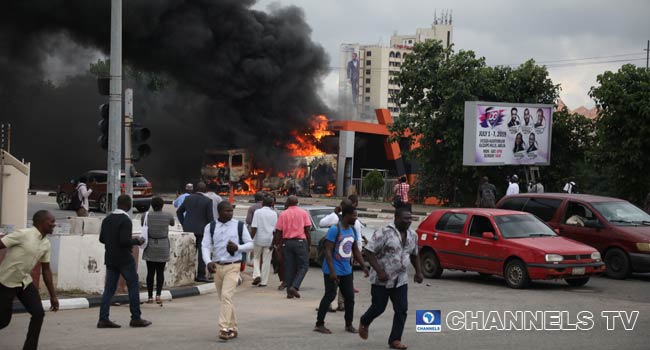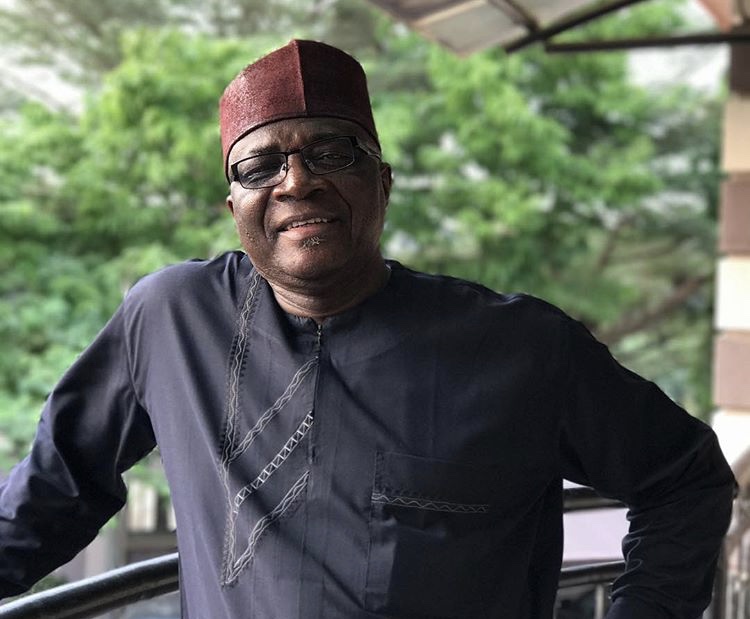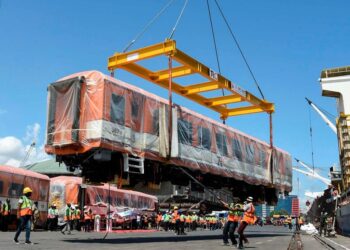
By Mohammed Momoh
At a press briefing on May 29, 2020 to celebrate first year of second tenure of President Muhammadu Buhari, information minister Lai Mohammed reported that the period had been momentous.
The Minister noted that President Buhari has “taken some actions, mostly bold and highly visionary, that have now put Nigeria on an irreversible road to sustainable development. Never in the history of Nigeria have so many positive steps been taken in so short a time as Mr. President has done in the past one year”.
Power Supply
On the issue of power supply, Lai Mohammed stated that irregular power supply is perhaps the single most formidable obstacle to the country’s economic development.
“It will be an understatement to say that inadequate power supply, hallmarked by regularly blackouts, has stifled Nigeria’s economic development” he explained.
He however stated that following an agreement with German company Siemens in July 2019 to boost power supply in Nigeria, the stage is set for the perennial power problem to become a thing of the past. “Under the three-phase agreement, Nigerians will enjoy 7,000 megawatts of reliable power supply by the end of 2021 (phase 1), 11,000 megawatts by the end of 2023 (phase 2) and 25,000 megawatts in the third phase”.
He added that Nigeria’s current power generation capacity is more than 13,000 megawatts, but only an average of 3,400 megawatts reliably reaches consumers. “In essence, the current amount of power that reaches consumers will more than double by the end of next year. In addition, this will create thousands of jobs and will leapfrog the country into the next level of industrial and social development,” the Minister said.
According to the Minister, President Buhari says the goal is simply “to deliver electricity to Nigerian businesses and homes. My challenge to Siemens, our partner investors in the distribution companies, the Transmission Company of Nigeria and the electricity regulator, is to work hard to achieve 7,000 megawatts of reliable power supply by 2021 and 11,000 megawatts by 2023 – in phases 1 and 2 respectively. After these transmission and distribution system bottlenecks have been fixed, we will seek – in the third and final phase – to drive generation capacity and overall grid capacity to 25,000 megawatts.”
Border Drill
The Minister explained that in a bid to put Nigeria on the path to food sufficiency, stem the flow of illicit arms into the country and improve national security; President Buhari ordered a border drill (border closure) to secure Nigeria’s land and maritime borders.
He stated that the border drill, code-named EXERCISE SWIFT RESPONSE, involves the Nigerian Customs Service (NCS) and Nigerian Immigration Service (NIS), in collaboration with the Armed Forces of Nigeria (AFN) as well as the Nigeria Police Force (NPF) and other security and intelligence agencies. “The drill is being coordinated by the Office of the National Security Adviser (ONSA)”.
He listed the achievements of the border closure to include food sufficiency, reduced smuggling, enhanced security, increased revenue, reduction in illegal migration and improved inter-agency collaboration.
“The border closure has boosted production of agricultural products especially local rice, tomatoes, pepper and poultry; and this has influenced the growth of the economy positively”.
“Today, Nigeria is fast attaining self sufficiency in rice production, as the border drill has drastically reduced rice smuggling into the country and catalyzed rice production by farmers across the country”.
“Now, Nigeria has over 34 integrated rice mills as well as rice clusters, while millions of direct and indirect jobs have been created, and huge amount in foreign exchange, that hitherto went into rice importation, conserved. Rice cultivation has increased from two to three times a year, while rice farmers are now venturing beyond rice cultivation to milling, packaging and marketing”.
“Overall, the integrated mills currently produce 150,000 bags of rice daily and about 35 million bags per annum, as at the last time we checked” he said.
On the issue of reduced smuggling, Lai Mohammed stated that “while the border drill has curbed the smuggling of rice and other prohibited items into the country, it has also led to significant seizures with estimated monetary value of close to 10 billion Naira, reduced local fuel consumption by 30% and reduced the importation of arms, munitions and drugs”.
He also explained that the border closure has made it more difficult for terrorists and other criminals to procure arms and ammunition while criminal elements no longer make their way into the country through the land borders.
“The implication is that we have witnessed a reduction in cases of insecurity – kidnapping, banditry, armed robbery or other violent crimes. The border closure has drastically reduced availability of hard drugs on the streets, as well as curbed activities of armed smugglers. Talking about security, you are all aware of the unprecedented successes being recorded every day by our gallant troops against the insurgents in the North-east. We must continue to support our troops as they clear the remnants of the insurgents,” he noted.
According to the Minister, raised its daily revenue from 4.5 billion Naira daily before the drill to between N5 billion and N8 billion daily.
He said the border closure exercise has also provided a unique platform for the participating agencies to operate jointly, thereby strengthening inter-agency collaboration and reducing animosity.
New Visa Policy
Alhaji Mohammed stated that President Buhari continued his string of bold and innovative initiatives by launching a new visa policy for Nigeria in February 2020.
“At the launch of The Nigeria Visa Policy (NVP) 2020, Mr. President said and I quote: “This new Visa Policy will advance our goal of building a globally-competitive economy, by helping attract Innovation and specialized skills and knowledge from abroad, to complement locally available ones. We are sending a message to the world that Nigeria is open for business.”
He explained that the new Visa Policy will also improve Nigeria’s business environment, attract Foreign Direct Investment, boost tourism, and improve African integration, without compromising national security and our territorial integrity.
“Highlights of the new visa policy, which has 79 categories, include the first category for ECOWAS citizens who can enter the country without visa; the second category for African citizens with African passport, from any part of the world, who can travel to Nigeria and obtain visa at the port of entry; the third category consists of frequent business travellers, while the fourth category consists of those who want to take residence, either temporarily or long term. This policy is aimed at simplifying processes and making Nigeria the preferred investment and tourism destination” he said.
Infrastructure Development
The Minister said the President Buhari Administration has embarked on a massive infrastructure renewal, the type of which the country has not witnessed since Nigeria’s return to democratic rule in 1999.
“The Administration has embarked on infrastructural projects – roads, bridges, rail, power, etc – in all the six geo-political zones. The Covid-19 pandemic may have briefly slowed down activities in this sector, but work is set to resume in over 50 infrastructure projects spread across 26 states” he said.
He listed the projects to include; “Second Niger Bridge, Abuja-Kano Expressway, the Owerri Interchange, Lagos-Ibadan Expressway and Port Harcourt-Enugu Expressway”.
He hinted that all is set for the commencement of road repairs in 92 locations across 24 states by the Federal Roads Maintenance Agency (FERMA) adding that work has also continued on the laying of rail tracks on the Lagos-Ibadan Standard Gauge rail line, which has already commenced test-run.
Job Creation
The Minister stated that while the N-Power Programme to empower Nigerian youths and create jobs is continuing, the Administration has another great step with the inauguration of the Committee for the pilot special public works programme, to be implemented by the National Directorate for Employment (NDE) in five Local Governments.
“In the wake of the Covid-19 pandemic, President Buhari has approved the engagement of 774,000 Nigerians for Special Public Works programme in the country to cushion the effect of the pandemic. Under the programme, the 774,000 Nigerians will be engaged for a period of three months, with a payment of N20,000 monthly allowance to each beneficiary,” he stated.
Fight against Corruption
He noted that the fight against corruption which is a cardinal programme of the President Buhari Administration, has continued unabated during the period under review.
“The leading anti-corruption agencies have been unrelenting in facing down the canker worm of corruption. In the last one year alone, the Independent Corrupt Practices and Other Offences Commission (ICPC) has recovered assets worth 81.23 billion Naira”.
He gave the breakdown to include:
– N 41.98bn — Money restrained on review of MDAs’ Personnel Cost Expenditure and Capital Development Fund
– N35.011bn — Lands, Buildings & Vehicles
-. N1.167bn — Cash in TSA
– N0.77bn — Recoveries from Constituency projects tracked
– N 1.097bn — Completed constituency projects on return of contractors to site
– N 0.865bn — Cash (Other Accounts)
– $1.113m — Cash (Other Domiciliary A/C) Converted @ N305/ $
The Minister stated that the ICPC has also established a Constituency Project Tracking Group, now named Constituency and Executive Projects Tracking Group, to track performance of publicly-funded projects, especially projects with immediate impact on the livelihood of ordinary Nigerians.
“424 of such projects were tracked within the period under review, which led to the completion of several abandoned projects and recovery of billions of Naira on some of the projects. Number of completed constituency projects in education, health, water resources, agriculture and other sectors increased to over 400 nationwide, from those that were specifically monitored. Furthermore, over 300 contractors who had abandoned projects returned to site in various parts of the country” he said.
In the area of prosecution, “the Commission secured 25 convictions in the past one year. The Commission received 1934 petitions within the period under review and concluded investigations on 588 petitions. 105 cases were filed in court and 25 convictions were secured”.
He said the ICPC has also escalated the use of administrative sanctions in the public service by periodically submitting, for sanction, names of public servants being prosecuted, in line with extant public service rules. “62 names were submitted to government for sanction in 2019”.
Lai Mohammed said that based on its prevention mandate, the Commission also reviewed the personnel and capital fund expenditure of 201 MDAs. “This activity led to the restraining of about N42 billion on inflated personnel cost which would otherwise have been diverted by MDAs mostly in health and education sectors”.
He said the Economic and Financial Crimes Commission (EFCC) has also secured 1,270 convictions and recovered huge amounts of money within the period under review. “The recoveries include 32.6 billion Naira; $10,348; 758,155 Pounds Sterling; 183,475 Euros; 294,950 Saudi Riyal; 2,800 Chinese Yuan; 300 Canadian Dollars and 500 CFA”.
The Minister stated that the 1,270 convictions include high profile ones, such as the liquidation and forfeiture of the P&ID Nigeria Limited to the Federal Government, after the conviction of the company for fraud and tax evasion.
Executive Order
He said President Muhammadu Buhari took yet another bold step on May 22nd 2020 when he implemented the financial autonomy of the state legislature and judiciary, by signing Executive Order Number 10 of 2020.
“This decision will strengthen the institutions at the state level and make them more independent and accountable in line with the tenets of democracy, as enshrined in the Constitution of the Federal Republic of Nigeria 1999 (as Amended). Executive Order 10 also gives fillip to the separation of powers, a fundamental principle of government, and strengthens the system of checks and balances,” he explained.
Covid-19 Pandemic
Alhaji Mohammed said but for the right reaction by the Administration, the situation as it is today could have been worse. Comparatively he said Countries with a quarter of Nigeria’s population and supposedly better healthcare systems have considerably higher number of cases and deaths.
“The Administration is not happy that Nigeria has even recorded a single case of Covid-19 or a single death, but the figures we have today could have been much worse, but for a series of proactive actions and the right leadership by Mr. President. The impressive leadership provided by the President in the fight against Covid-19 led to his appointment as the Champion of the Covid-19 response by the Presidents of West African countries under the aegis of ECOWAS Authority of Heads of State and Government.”
President Muhammadu Buhari of Nigeria was elected in 2015 on the strength of his promise of change, especially in the cardinal areas of fighting corruption, tackling insecurity and revamping the economy,
Nigerians re-elected the President in 2019, he is now serving the second year of the second and last tenure of his administration.












